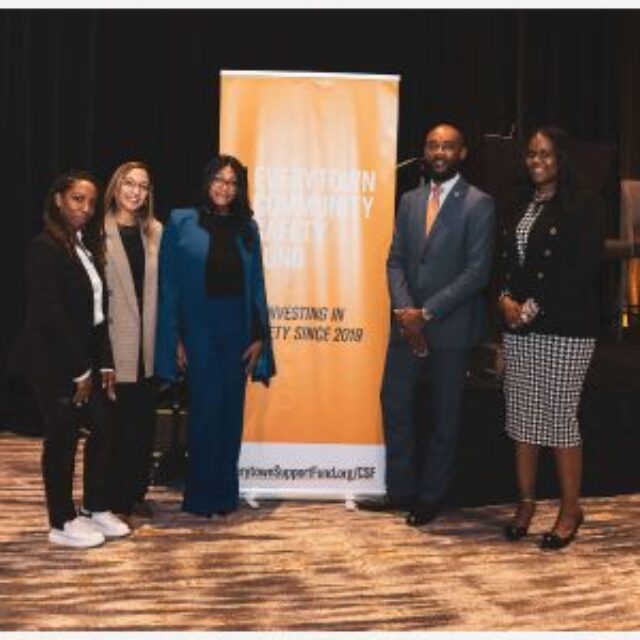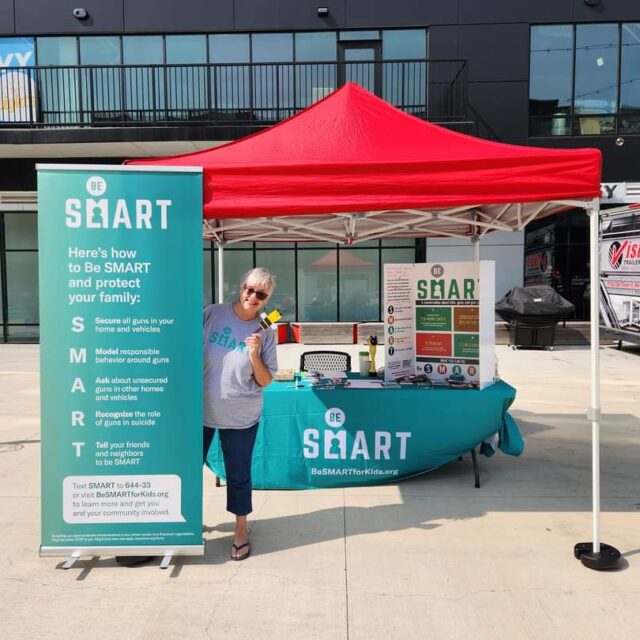It’s time to deepen the conversation about mental health and suicide

By: Doreen Marshall, American Foundation for Suicide Prevention 9.23.2021
While I was in graduate school, my fiancé at the time died by suicide. As you might imagine, that led to a lot of personal healing, but it also made me realize how little I understood about suicide. That experience affirmed my commitment to work in suicide prevention and to support others grieving a suicide loss. Now, as the Vice President of Mission Engagement at the American Foundation for Suicide Prevention (AFSP), I work to advance AFSP’s mission to save lives and bring hope to those affected by suicide.
Having lost someone close to me to suicide over 25 years ago, Suicide Prevention Awareness Month is deeply personal for me. September is a time to highlight all of the important efforts that are happening to advance suicide prevention in the United States, many of which weren’t happening when my loved one died by suicide.
The month also recognizes that many struggle with thoughts of suicide, and we want them to know that they are not alone and that there is power in their stories of lived experience. I continue to be inspired by the countless individuals actively working to end this leading cause of death.
People have become increasingly comfortable talking about mental health, but the topic of suicide is still scary to many.
It’s time to deepen the conversation about mental health and suicide. Some people are afraid that by asking someone if they’re having thoughts of suicide, it will put the idea in their head, or push them to take their life—which research shows is not true. Some are worried that they won’t know what to do, or how to help, if the person tells them, “Yes, I am thinking about suicide.” It’s only by learning more about what leads someone to suicide, the ways we can help to prevent it, and what resources are available—and not being afraid to ask when we’re worried about someone, or for help when we need it ourselves—that we can empower our communities to address this leading cause of death.
If you are worried about someone, don’t be afraid to ask them directly if they are having thoughts of suicide. And then listen to them as they respond and help them get connected to a mental health provider who can evaluate what is needed to help them. Provide the National Suicide Prevention Lifeline 1 800 273-TALK or the Crisis Text Line (Text TALK to 741741) to others and keep it in your phone. Even seemingly small, caring actions can make a difference to someone who is struggling, so don’t hesitate to reach out and let them know that you are here for them.
We all have mental health. It’s time we take the next step, ask more deeply about what someone is experiencing, and if we need it, find help together. Together, we can help #StopSuicide.
Discussing secure firearm storage can help prevent suicide by firearm.
We know that roughly half of all suicide deaths in the U.S. are by firearms, and 2/3 of all firearm fatalities are suicide deaths. Having an open conversation about suicide with those who own firearms and encouraging safe storage—ensuring that firearms are stored locked, unloaded, and separate from ammunition—is a key component of preventing suicide by firearm.
We have made tremendous progress in understanding suicide and raising awareness of suicide as a leading cause of death.
AFSP is proud to be the largest private funder of suicide prevention research in the United States. We work to provide suicide prevention and postvention education programming to local communities through our chapter network in all 50 states. We also engage in state and federal suicide prevention advocacy efforts, and support those impacted by suicide through our Healing Conversations program and International Survivor of Suicide Loss programming.
I feel privileged to get to do this work. I am grateful every day for the many people that I’ve met who have shared their stories of loss and of hope with me. I carry them, and those we have lost, with me each day as I do the work.
Learn more about AFSP
Learn about the American Foundation for Suicide Prevention, and our mission to save lives and bring hope to those affected by suicide.
Learn MoreNational Suicide Prevention Lifeline
If you or someone you know is in crisis, please call the National Suicide Prevention Lifeline at 1-800-273-TALK (8255), or text HOME to 741741 to reach the Crisis Text Line for free from anywhere in the US.
Author
-
Doreen Marshall, American Foundation for Suicide Prevention
Vice President of Mission Engagement at the American Foundation for Suicide Prevention (AFSP)





